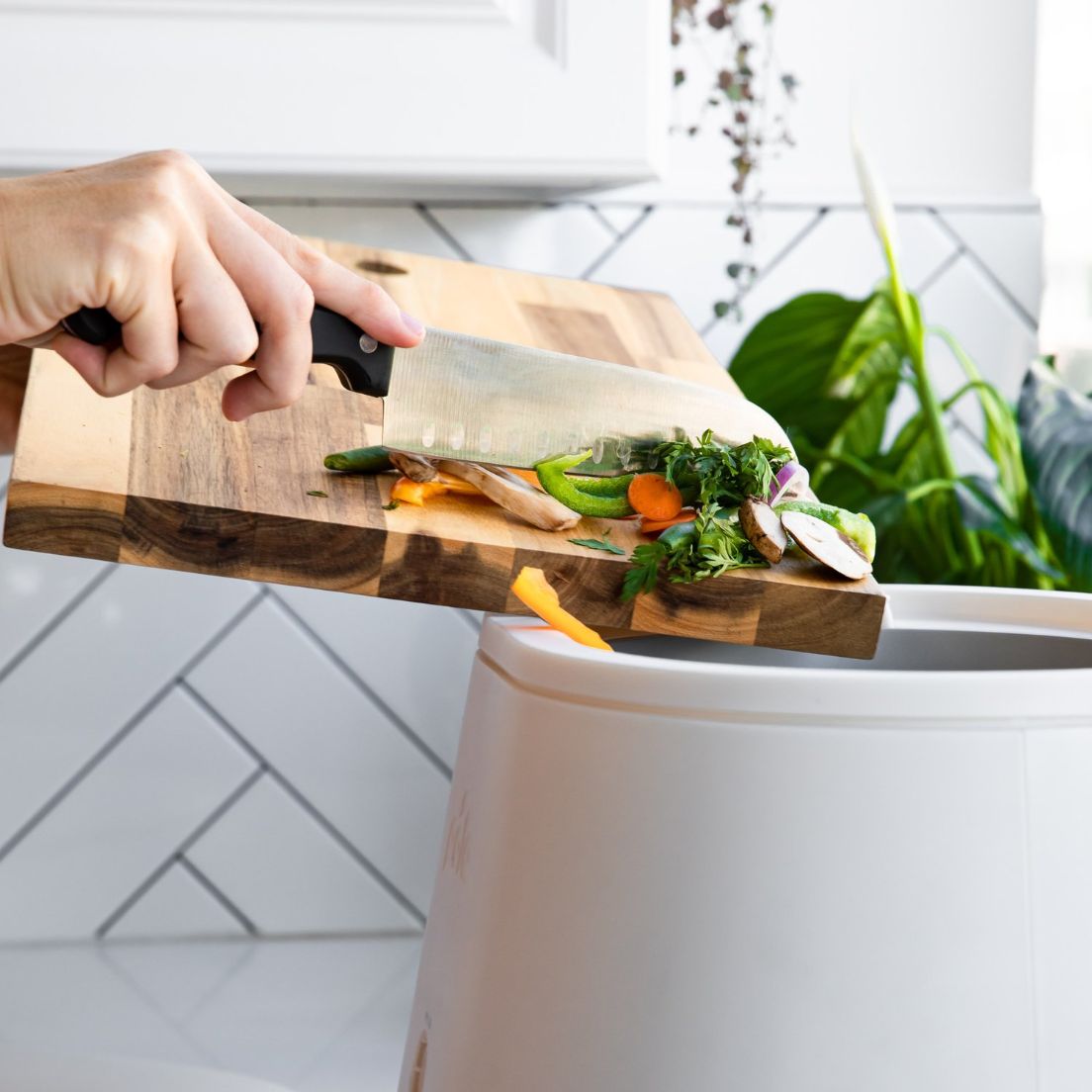
Lomi is a revolutionary way to dispose of food waste. It’s a small appliance that silently transforms your food waste into a high quality natural fertilizer, ready to be returned to the earth. In every Lomi household, food waste becomes a solution, instead of a problem. Kitchen scraps are used to feed plants and gardens instead of going to a landfill.
Lomi was designed with purpose and thoughtful design. Each detail was tailored for two purposes: 1. Making the life of all Lomi-users easier, 2. Making strides towards Pela’s goal of eliminating 10 billion pounds of waste from landfills and oceans by 2028.
With so much intention behind the product, there must be a reason for the name… right? Of course there is.
Feel free to jump to your most burning question:
- What is the meaning of “Lomi”?
- Why is it called Lomi?
- What does “Lomi’ mean in other contexts?
- What is Lomi Earth?
The definition of Lomi goes deeper than you might expect. Let’s dig into it.
What is the meaning of “Lomi”?

First and foremost, “Lomi” is the name of a powerful at-home food recycler that breaks down food waste in just a few hours to create a usable, nutrient-rich fertilizer.
What does Lomi mean? Lomi means a food waste-free future. Lomi means taking care of your food waste without the mess, odors, or inconvenience. Lomi means making sustainable choices everyday. Lomi means a life-long supply of nutrient-rich dirt for your houseplants and garden.
Now that we’ve got that cleared up, let’s get into Lomi’s origin story.
Why is it called Lomi?

In 2018, Pela Founder Jeremy Lang along with CEO Matt Bertulli asked an important question: What if food waste was optional? They began on a mission to increase the convenience of organic waste disposal while attempting to prevent as much food as possible from ending up in the landfill.
After over 3 years of technological development, their idea came to fruition. The team at Pela had successfully created a compact machine that breaks down food waste, eliminates odors, and creates an end product that is perfect for adding to houseplants and gardens.
Lomi was named after “Loam”, a type of soil that is ideal for gardening and agriculture. In fact, Lomi was originally spelled “Loami”. Loam has special qualities compared to other types of soil. It is excellent at holding nutrients and has an ideal texture. It also retains water long enough for plant roots to access it, yet it drains well, meaning that the water eventually seeps away so that plant roots do not sit in water and rot. Quality soil is often a make-or-break factor in plant health.
Lomi’s end product, Lomi Earth, is made of real, fresh food waste. Lomi Earth is only made of things that you would eat yourself, making it the best possible soil add-in for your plants. No more artificial fertilizers, no more low quality soil. Just like loam, Lomi offers the best-of-the-best for plant growth. This is an awesome way to recycle natural materials back into the earth with a low environmental footprint.
But there’s more: the ability of loam soil to hold nutrients can be greatly increased by adding natural fertilizer, becoming ever-better through the addition of commonly wasted products. Lomi aspires to create the same impact–using household food waste to enrich soils while saving people money and time. In some parts of the world, loam soil is also used in house construction. Like Loam, Lomi creates an end product that can be used in many different ways.

What does “Lomi” mean in other contexts?
Aside from being inspired by loam soil, Lomi’s name also has connections to more traditional uses of the word.
In Hawaiian culture, Lomi is a method of preparing food by hand by rubbing or pressing ingredients together. In the Philippines, Lomi is a dish made with a variety of ingredients containing egg noodles, vegetables, meats, and more.
Just like the culinary meanings of the word, Lomi is all about breaking up a wide variety of ingredients. Lomi creates something magical from ‘rubbing and pressing’ a variety of ingredients together like grains, vegetables, and meats.

Now that you understand what Lomi means and where the name comes from, let’s explore some other aspects of Lomi.
What is Lomi Earth?
Lomi transforms your food waste into a nutrient-rich fertilizer that is ready to use in your plants or garden. Lomi Earth consists of whatever food you put into your Lomi. This means each batch made in Lomi yields a unique end product, creating a diverse mix for your plants with varying nutrients.
Lomi, in a nutshell
Lomi means a lot more than what meets the eye. Yes, it’s an at-home electric food recycler, but it’s also a story and a mission. To a busy parent, it means a mess-free kitchen. To a gardener or plant-lover, it means a lifetime supply of healthy, natural fertilizer. To us, Lomi means making strides towards a waste-free future.
Enjoy the journey of creating your own story and meaning behind your Lomi.
Written by: Cassia Attard
